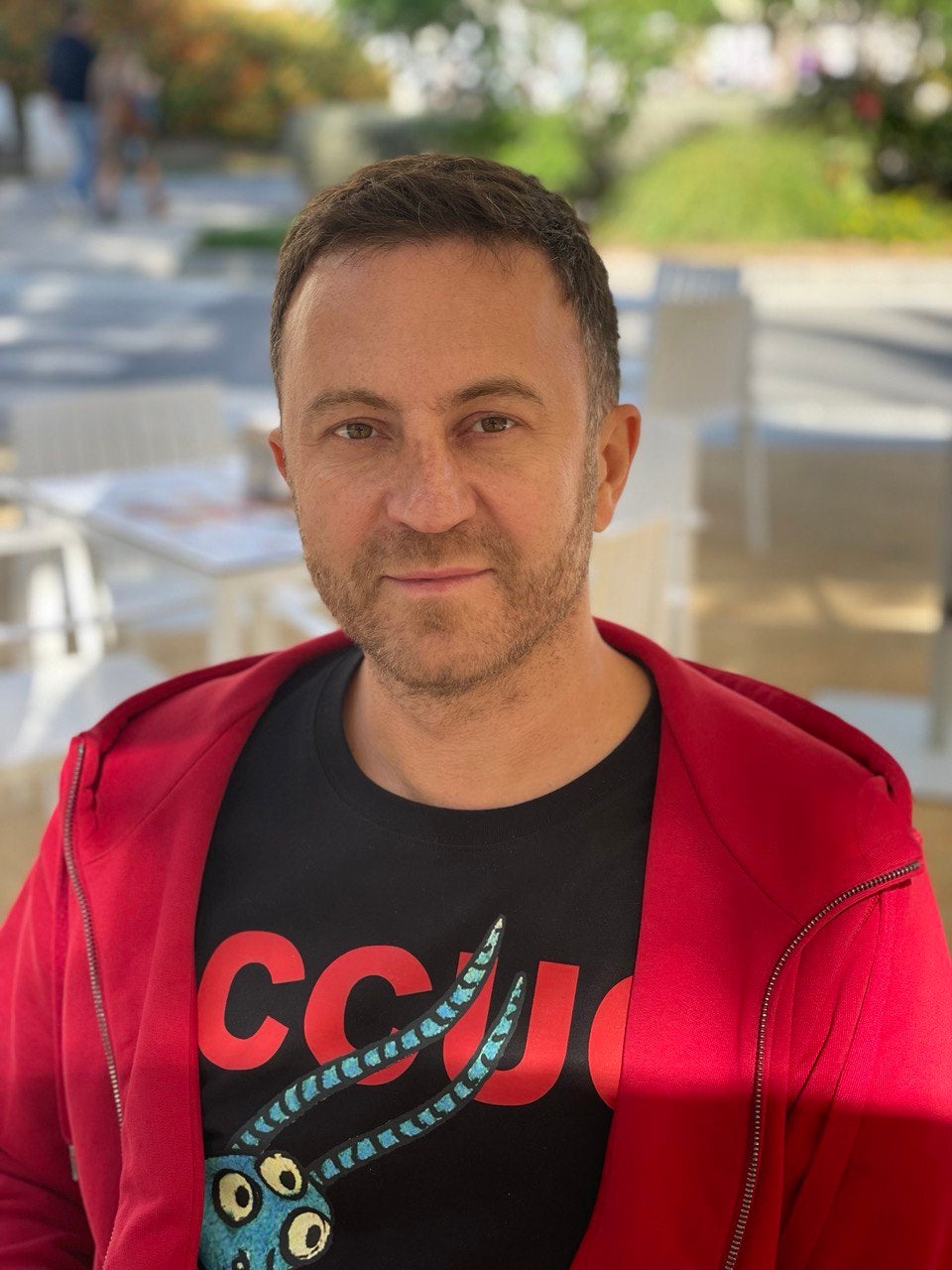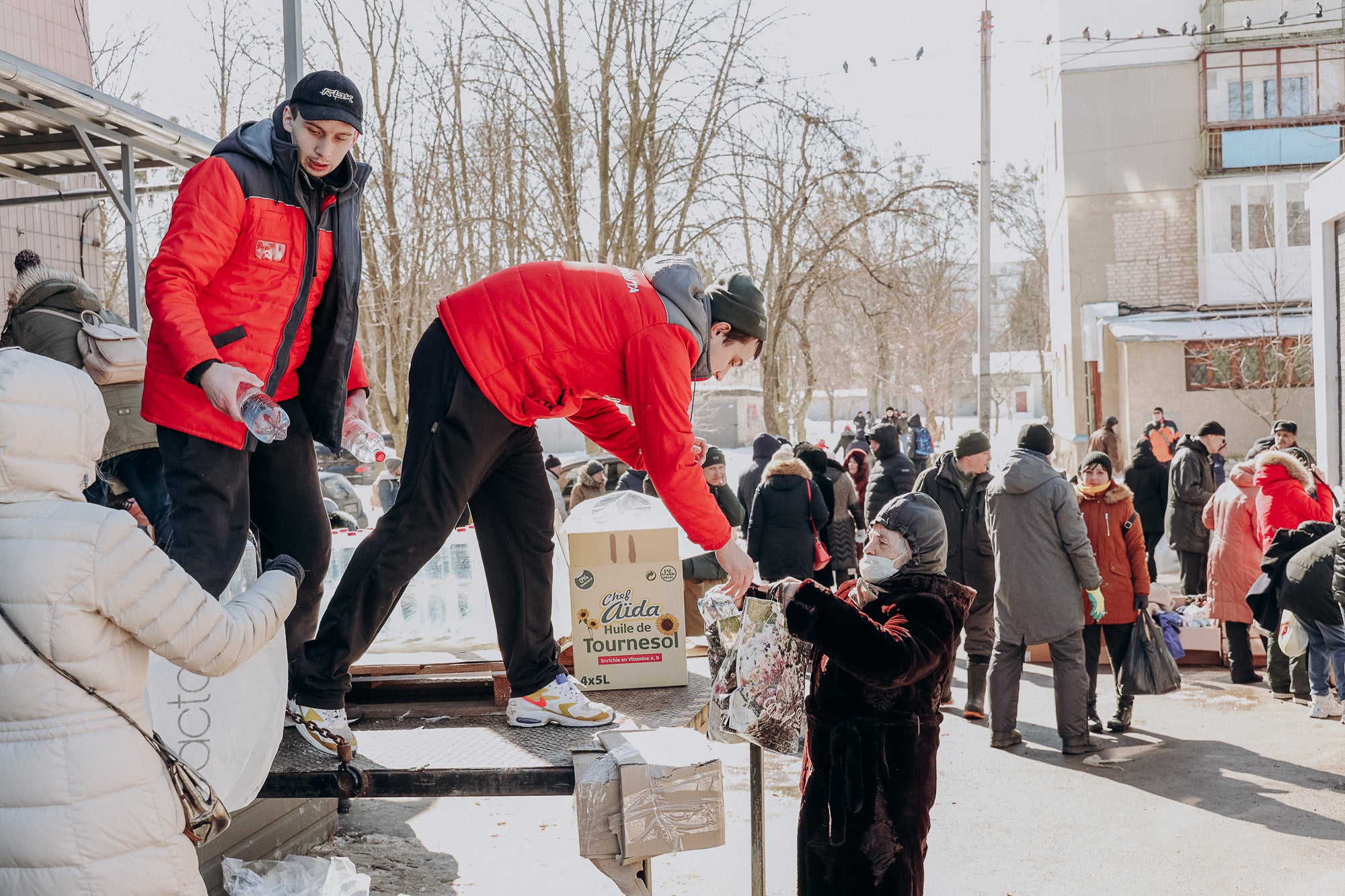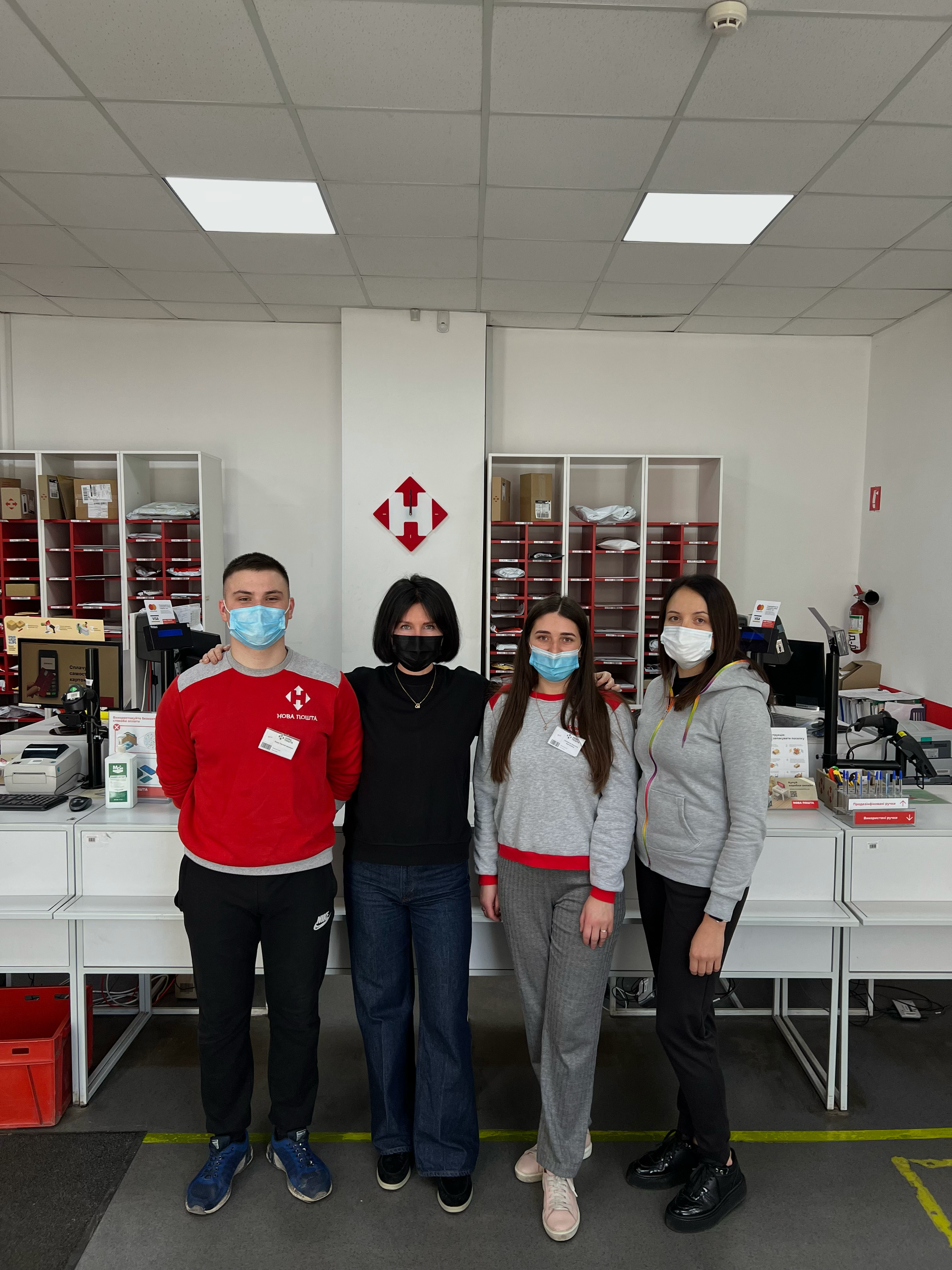‘Shelves need to be filled’: The Ukrainians who are keeping the economy running
A delivery firm CEO, food production boss and wine store marketing director tell The Independent’s Bevan Hurley how they have transformed their businesses to aid the war effort


When the Russian artillery started landing in Ukrainian cities on 24 February, the country’s largest private courier company Nova Poshta transformed itself almost overnight.
From delivering 1.5 million parcels each day prior to the invasion, co-founder Inna Popereshnuyk says the 32,000-strong workforce is now focused on getting medication, food, documents, clothes and donated humanitarian aid to those in greatest need.
Ms Popereshnuyk told The Independent its thousands of couriers faced constant danger.
“You never know where a rocket or shell will hit, where the shelling will come from. But our employees are real Ukrainians, fighters and patriots. We all are very united nowadays,” he said.
Ms Popereshnuyk’s business is one of thousands in Ukraine that have reorganised to help Ukraine’s economy continue to function amid the humanitarian horrors of the month-long war.
Where it used to take 24 hours to deliver a package, it now takes four to six days.
“The main difficulty is overcrowded roads due to checkpoints in each locality, checking documents from drivers and cargo, broken bridges. Many main roads have been destroyed and new logistic routes have to be found through the villages.”

Nightly curfews mean their cars cannot move in the evening, and only 29 of its 141 sorting centres have been able to remain open. The queues often stretch 200-people deep at the pick-up locations.
Employees have round-the-clock access to psychologists, and travel routes are updated in real time to avoid potential threats.

Like all businesses in Ukraine, Nova Poshta is suffering. But Ms Popereshnuyk says they have a bigger purpose now.
“Economic suppression of Ukraine is one of the tasks of the war against us. And we have to fight back from that as well. To save our economy and our people.”
Since Russia launched its invasion of Ukraine on 24 February, millions have fled their homes, and thousands have picked up arms to join the Ukrainian Armed Forces.
With many parts of the country facing bombardment, dwindling food and medical supplies, and in some cases no power or water, businesses have been called in to assist with the war effort in any way they can.

As martial law was imposed on Ukraine in early March, sales of alcohol were restricted and then banned in all cities and towns.
The move was a commercial blow to Ukrainian wine distributors and retailers Goodwine, but bigger problems were to come.
On 4 March, its main warehouse near Kyiv was destroyed by Russian artillery.
Goodwine’s marketing director Mariia Oliinyk estimates they lost $16.5m in stock, including thousands of cases from Burgundy, Bordeaux and Champagne, as well as its domestic Ukrainian wines.
“This news shocked us,” Ms Oliinyk told The Independent.
Goodwine has now dedicated its staff and distribution networks to delivering food to hospitals, territorial defense units and Ukrainian army.
“Every day we deliver humanitarian cargo from our partners in Europe to Kyiv, Kharkiv, Sumy, Kherson, Mykolayiv, Chernhiv,” Ms Oliinyk said.
She said the adrenaline that helped Ukrainians get through the early phase of the war has worn off, and they were now having to fight off feelings of apathy.
“It becomes very difficult to believe in a better future. The ability to live a normal life, to work, to do sports, to eat well makes you feel OK, returns you to feeling yourself.”

Roman Kvashenko, the 46-year-old CEO of food production company TH Technology Trade, says the only way to deal with the stress of war is remaining constantly active.
His food technology company has 60 employees, and prior to the war was involved in producing vegan alternatives to regular staples.
Since the invasion began, their production facilities have been targeted by shelling, and staff can only work when the bombs aren’t falling.
It is dangerous work, but Mr Kvashenko says they take their role in keeping the country fed very seriously.
“The country needs food, supermarket shelves need to be filled,” he told The Independent.
Bombs aside, the biggest hurdles they face since the war started is that their foreign suppliers have cancelled the deferral of payment for raw materials and require 100 per cent payment upfront.
“We explained to all our customers the new realities of business, they explained it to supermarkets and now everyone is working with minimal delays.”
Mr Kvashenko said he was trying to remain optimistic in spite of seeing so many of his countrymen and women suffer casualties.
“My personal method of dealing with stress is to occupy yourself to the maximum with work or volunteering. People need to work hard not to go crazy from this terrible war.”
Join our commenting forum
Join thought-provoking conversations, follow other Independent readers and see their replies
Comments
Bookmark popover
Removed from bookmarks